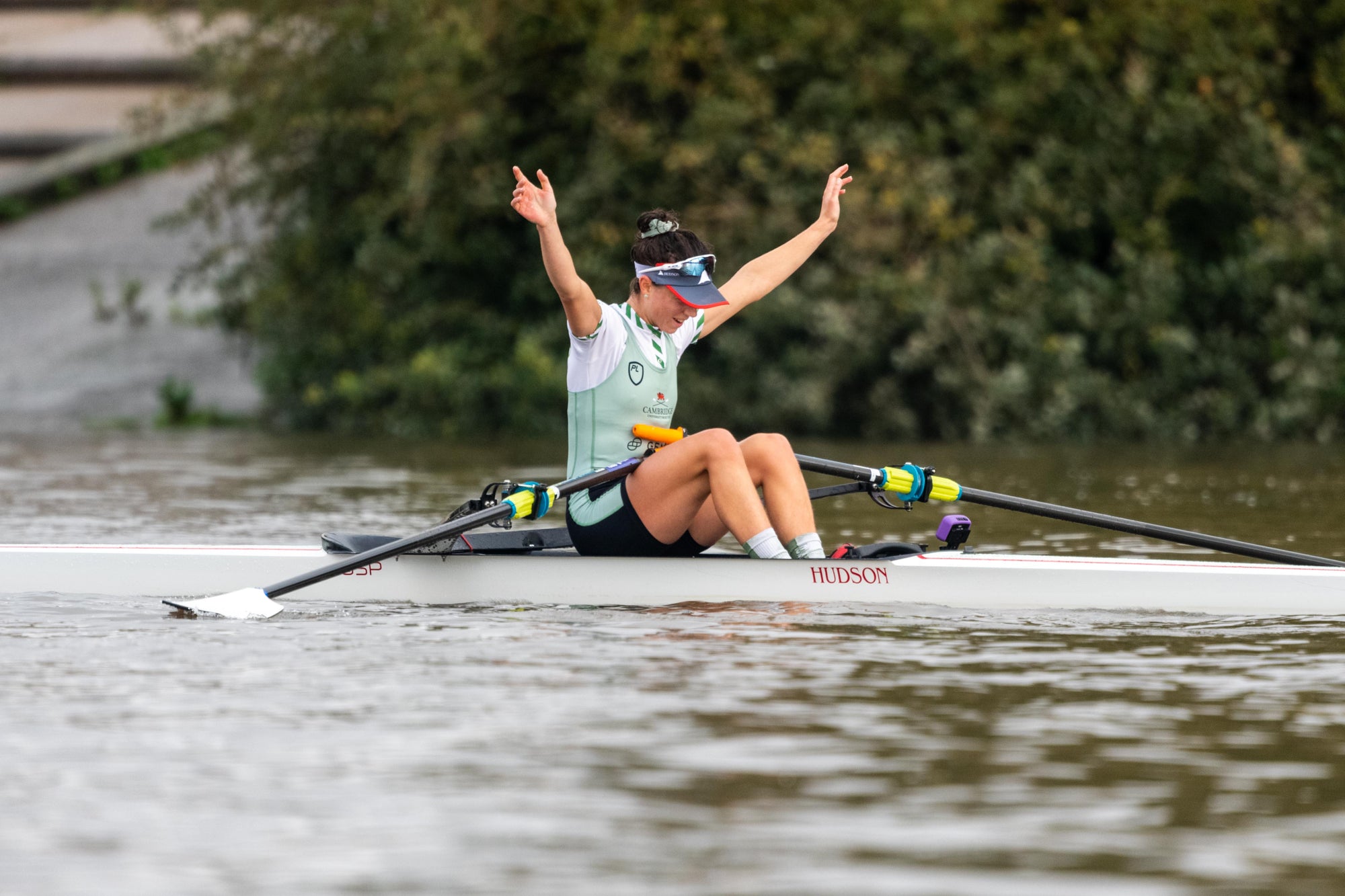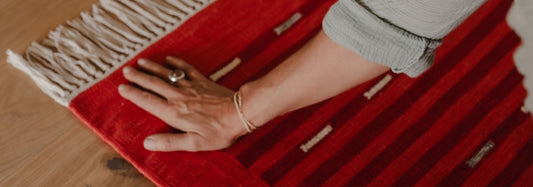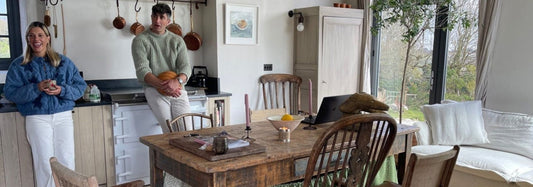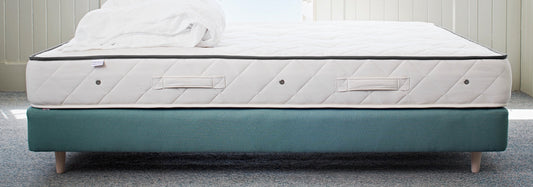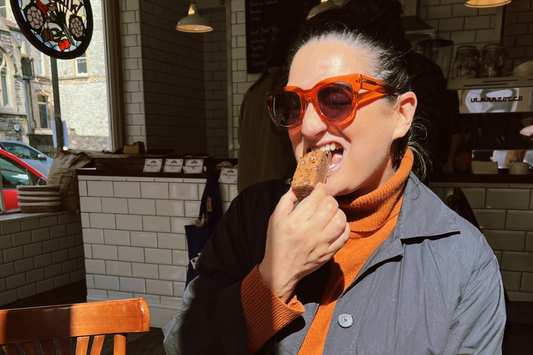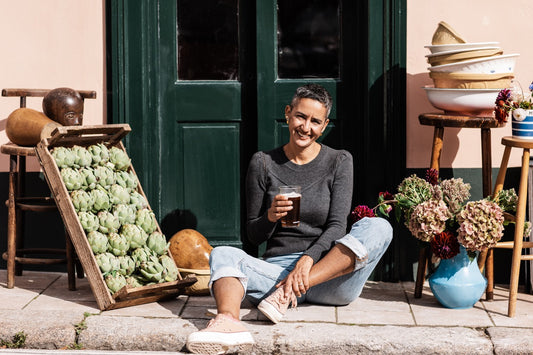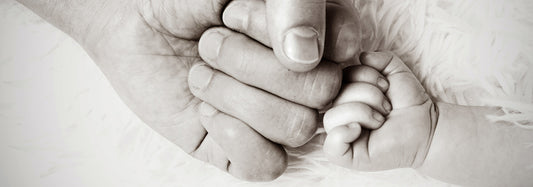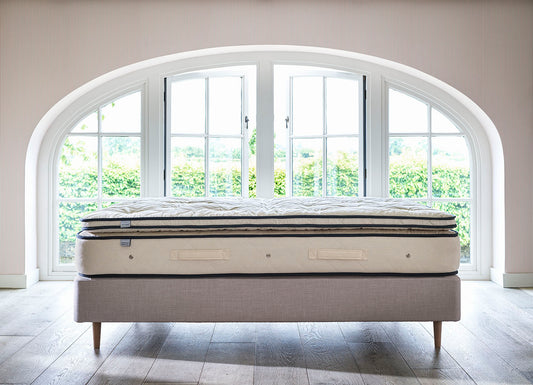Imogen Grant is an Olympic gold medalist in rowing, having recently triumphed at the Paris Olympics. Alongside her athletic achievements, she's also a full-time medical doctor—a testament to her extraordinary dedication and drive. Beyond her impressive pursuits, Imogen is passionate about sustainability and finds time to champion eco-friendly living, including her choice to sleep on a Naturalmat mattress.
We caught up with Imogen to discuss her journey from athlete to Olympian, her career in medicine, and how she integrates her commitment to sustainability into her demanding schedule.

Could you tell us a bit about how you got into rowing? Did you always know it’s what you wanted to do?
I grew up in Cambridge, but I didn’t learn to row until I was at university. I always thought rowing was a silly sport growing up - early mornings, blisters, rain, and you can’t even see where you’re going! At my college in Cambridge the boat club (1st and 3rd Trinity Boat Club) ran a Fresher’s event known as boatie cocktails to entice new recruits to learn to row. If you signed up for a taster session you got two free drinks, so I went for the free drinks, not intending to actually turn up. At the last minute I decided to go to the session and as soon as it was over I signed up for the next! I loved the enthusiasm of everyone in the boat club, and seeing myself improve every single session I did. By the end of the first term I was training more than the top senior boats from our college.
Do you have any tips for young athletes who are just starting out?
If you’re enjoying yourself, then you’re doing the right thing! I have always been grateful that I had the opportunity to try different sports growing up - swimming, gymnastics, diving, martial arts, archery and more. Doing so many sports that I enjoyed but didn’t take too seriously I think gave me a great base to learn rowing so fast. I believe that if I had started rowing too young I would not have taken it to the level I have achieved now, as I would not have been mature enough to take on the challenge.
Secondly, you don’t have to choose just one thing to be good at! If you like singing and sports, or academics and orchestra, or rowing and medicine like me. When I was growing up I only focused on my academics because I didn’t think it was possible to do both. Going to Cambridge opened my eyes and showed me that I don’t have to limit myself.
Finally, get enough sleep! Balancing sport is tiring, and it is often tempting to stay up late to finish off work or fit extra training in. Getting better is as much about the balance of recovery as it is about the training sessions we do. A well rested person is going to manage everything so much better.
Huge congratulations on your win in Paris this year! How did you prepare the night before the big competition?
Thank you! I sometimes struggle to sleep before big races, so my preparations actually started days before, trying to build up nights of really good sleep and recovery so that even if I didn’t sleep well it wouldn’t affect me on the day. We have to get up quite early for rowing, so it was an early bed time, and I try to wind down so that every day feel consistent. Taking my mind off the preparation is one of the main ways I do that, so I was watching some Netflix and doing some knitting the night before.
Not only are you an olympic gold medalist, but you’re also a doctor. Could you tell us a bit about that journey, and what you’re doing now in your profession?
I started work as a foundation doctor 3 days after the closing ceremony of the Olympics, so it was quite like whiplash going into something new so soon! I have wanted to be a doctor since I was 9, so this was a dream almost 20 years in the making. It’s my first ever job as a doctor, and I have three rotations this year. Choosing a specialty comes later down the line after two years of work. Everyone at the hospital has been so welcoming. It’s a big change, but I am hoping that I can balance work with training like I did during my degree.
I understand sustainability is very important to you. As a high-performing athlete and doctor, how do you implement ways to live more sustainably into your busy schedule?
I am very passionate about trying to reduce my personal impact on the planet, as well as encouraging others to do the same. I went vegan almost two years ago, as this is one of the best ways to reduce carbon footprint, and I am trying to cycle to work at least once a week. I am also an ambassador for the rivers trust, and champion improving water quality and river health in the UK. Speaking to so many motivated people is always so inspiring, and it feels like we have some momentum to make a real difference.
This must have been an incredibly busy period for you. How do you unwind in the evenings?
The last month has been extremely busy, with finding a new routine working full time, visiting T studios, schools, and clubs, and trying to see if I can do some training as well! Creative outlets are the way I relax, and I am knitting a cardigan for my wedding later in the year. I also am planning to sew some new clothes for myself from fabric I bought as a souvenir in Paris.
Getting an early night is very important to me though, so often there isn’t time for much more! Sleeping on my Naturalmat mattress has made a huge difference to how quickly I can fall asleep, which is really important when I have to get up early again the next day!
What’s next after your Paris victory?
Paris was such an incredible experience, and immediately I thought, “wow, I have to get to LA so I can experience this again”. My event has been removed from the Olympics, but I will explore if I would be competitive in one of the other events. It’s early days, so we will have to see, but I am excited for the future.

